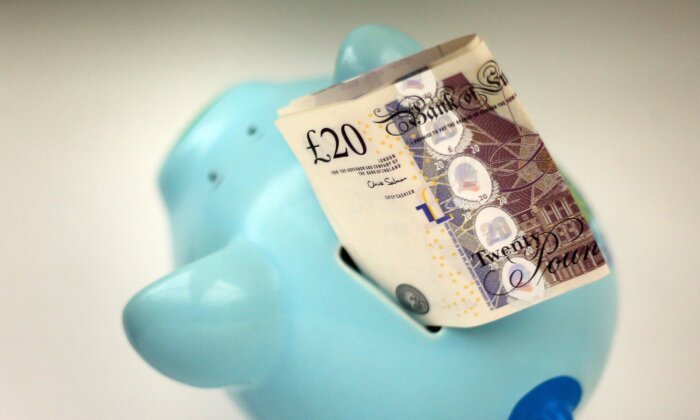The Parties’ Budget Plans: How Your Money Will Be Spent
Three of the top four parties avoided major changes to tax and spending in their manifestos, except for Reform.
Regardless of the outcome of the upcoming general election on July 4, the next UK government will face record-high debt levels, tax burdens, and increased demand for public services.
So, how do the parties plan to manage your money?
The major parties have focused on what they won’t do rather than specific plans for tax hikes or spending cuts.
They have assured no major increases in personal or corporation tax rates, with silence on smaller taxes and potential cuts in spending.
The Tories pledged £17.2 billion in tax cuts, while Labour and the Liberal Democrats proposed modest tax and spending increases.
Reform UK, aiming to become the main opposition, made bold claims, suggesting £150 billion in savings to fund tax cuts and spending increases, while the Green Party also committed to significant tax and spending increases.
The IFS also questioned the feasibility of Reform and Green party proposals, labelling them as “wholly unattainable.”
National Insurance, Income Tax, VAT
Both Labour and the Conservatives vowed not to raise national insurance (NI), income tax, or VAT rates.
The Tories outlined further plans to reduce employees’ NI by 2 pence by April 2027 and eliminate the main NI rate for self-employed individuals by the end of the Parliament. They also expressed a long-term goal of abolishing employees’ NI altogether.
However, both parties did not address the freezes on personal tax thresholds, which could push more individuals into higher tax brackets in the next few years. The Lib Dems mentioned a potential reversal of these freezes when deemed financially feasible but did not specify changes to the main rates.
Reform, ranked third in most polls, proposed raising the income tax threshold, increasing the NI rate for foreign workers, removing VAT on specific items, and adjusting the business VAT threshold.
Additionally, Reform suggested abolishing IR35 rules to support sole traders, while the Lib Dems promised a review of the system.
The Conservatives also assured no increase in capital gains tax, retaining the exemption on primary home sales, and introducing a tax relief for landlords selling to existing tenants.
Labour ruled out reforms to council tax bands, while the Tories indicated no plans to expand the number of bands.
NHS
Labour, the Conservatives, and the Lib Dems made modest spending commitments for the NHS, with a 2022/2023 budget of £185 billion.
According to the Nuffield Trust, it is unclear how much of the pledged spending qualifies as “additional,” as baseline figures were not provided.
The health think tank projected marginal increases in real terms compared to previous lows, with funding gaps under the Lib Dems, Labour, and the Tories ranging from £19.5 billion to £23.5 billion.
Reform pledged £17 billion for the NHS, including tax moratoriums for staff and other reforms.
Minimum Wage
The Tories committed to maintaining the National Living Wage at two-thirds of median earnings each year, while Labour and the Lib Dems vowed to establish a “true” living wage.
Labour proposed removing age bands for minimum wage and factoring in living costs, while the Lib Dems promised an independent review.
Reform did not outline specific policies on this issue.
Two-child Benefit Cap:
Opposition parties and some pro-natal Conservatives opposed the two-child limit on universal credit, yet Labour has not committed to its immediate repeal despite pressure.
The Tories defended the policy, citing its role in boosting employment rates. Prime Minister Rishi Sunak affirmed the party’s intention to maintain the cap.
The Lib Dems and Reform, along with other smaller parties, supported abolishing the cap.
Furthermore, the Tories plan to increase free child care for working parents and reform the child benefit system for families with lower combined incomes.
Pension
Most parties promised to uphold the triple lock, ensuring state pension increases annually in line with certain benchmarks.
The Conservatives proposed a “new Triple Lock Plus,” extending the triple lock to tax-free personal allowances for pensioners.
The party also expressed willingness to consider a report on the so-called WASPI women issue but did not commit to compensation.
Reform suggested major pension reforms, ending the mineworkers’ pension issue and advocating for increased ownership of utilities by UK pension funds.
Labour and the Lib Dems aim to align pension fund investments with climate objectives.
Net Zero
The Tories pledged to avoid additional green levies, invest in green industries, scale up nuclear power, and implement a significant power plant project.
Labour proposed a Green Prosperity Plan, with both Labour and the Lib Dems planning to increase windfall taxes.
The Lib Dems also mentioned introducing a super tax on private jet flights and reforming aviation taxes.
Reform intends to eliminate net zero initiatives and associated subsidies, projecting substantial cost savings over the next 25 years.
Defence And Foreign Aid
The Tories, Labour, and the Lib Dems committed to increasing defense spending to 2.5 percent of GDP, with the Tories setting a deadline of 2030.
Reform made ambitious promises on defense spending, aiming for GDP percentages increase within specific timelines.
Regarding foreign aid, the Lib Dems proposed restoring aid to pre-pandemic levels, while the Tories and Labour plan to do so when fiscal conditions are favorable. Reform pledged to reduce foreign aid by half and review its effectiveness.
Details Unclear
Both Labour and the Conservatives have not provided specifics on taxes like fuel duty and inheritance tax.
With increased spending on defense and health services, a departure from previous trends, the major parties aim to maintain public services through economic revitalization and heightened public sector efficiency.
In light of the IFS analysis, organizations warn of potential cuts to investment spending and highlight the country’s need to address the “trilemma” of tax increases, spending cuts, or increased borrowing.





